If you love needlework history, if you’re a textile enthusiast, an embroidery history buff, a bibliophile… but if, like me, you’re needlework library might be a little out of control, and you might be thinking I just don’t have space for One More Book…then you’ll appreciate this list!
There are many places online where we can access old embroidery books, download them onto our computers, and learn from them. I’ve often spoke of Antique Pattern Library, Internet Archives, and similar places where you can find instructional and pattern books for all kinds of needlework and embroidery techniques.
But what about scholarly works that have to do more with the history of embroidery, needlework, and textiles? Even more recently published whole books, articles, and bits that can give us insight into the history behind the embroidery we love so well?
Thanks to the Metropolitan Museum of Art and their vast download library at Met Publications, we have access to quite a few excellent works of historical significance that are worth reading, if you love the history of embroidery and needlework, or if you want to know more about specific eras of needlework history.
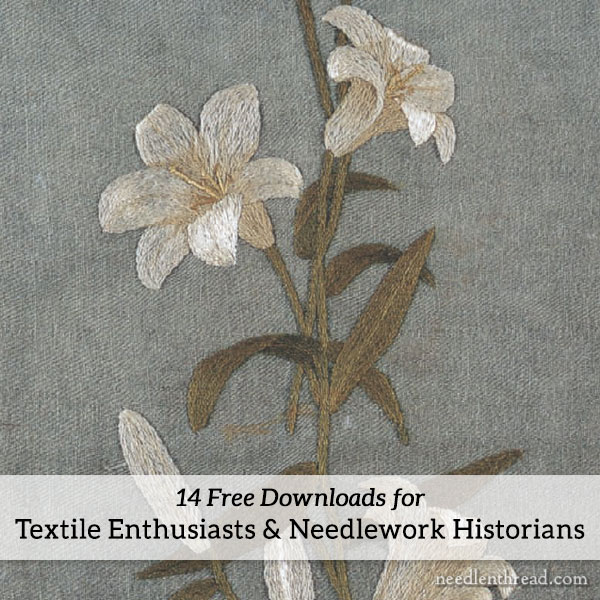
The collection at Met Publications can seem a bit overwhelming at first, but it’s pretty easy to find topics you’re looking for, because they have an excellent cataloging system and a key word search.
Browsing through their collection without searching specific topics is a lot like falling down the proverbial Rabbit Hole. It’s fun, but it can be a real time sucker!
While recently browsing their collection and following a few key word searches, I ferreted out 14 downloadable books, articles, and bulletins that are significant to the needlework enthusiast.
Here’s a list and a brief description, with links to the download page. If you find something that piques your interest, you can visit the page and download the book to your computer or tablet, and read away, without having to add yet one more book to your bookshelf!
All the publications below are available in downloadable PDF format. Some are available to read online, if you want to look the publication over before downloading it. Many of the publications have fantastic full color photos of needlework, textiles, tapestries, embroidery and the like, while others sport black and white images. It just depends on the type of publication it is.
Hope you enjoy!
Downloadable Publications for Embroidery & Textile History Enthusiasts
Andean Four-Cornered Hats: This is a study of the unique four-cornered hats from the Andes mountains. The hats are woven in intricate, colorful, geometric patterns.
Candace Wheeler: The Art and Enterprise of American Design (1875-1900): Candice Wheeler was the founder of the Society of Decorative Art in New York. When visiting the 1876 Centennial Expo in Philadelphia, she was inspired by the embroideries she saw there from the Royal School of Art Needlework. She became a driving force behind the “professionalization of women in the design field.” Inspiration in her own designs came from folks like William Morris and Walter Crane. Moving into the Art Nouveau era, she was also highly influenced by Japanese design. The book makes great reading about a fascinating part of American textile and decorative art history.
Chinese Textiles: An Introduction to the Study of their History, Sources, Technique, Symbolism, and Use: The title pretty much says it all! This is a handbook that accompanied an exhibit at the Met in 1931.
Ecclesiastical Vestments of the Middle Ages: An Exhibition (The Metropolitan Museum of Art Bulletin, v. 29, no. 7 (March, 1971) – In this volume, you’ll find articles on Opus Anglicanum, the development of sacred vestments during the Middle Ages, vestments in the modern church, a glossary of terms, and photos of the Met’s acquisitions in this area. Most are black and white, but still good to see! The history is interesting.
The Metropolitan Museum of Art Bulletin, v. 24, no. 10 (June, 1966) – an close-up look at a tapestry-style (embroidery, appliqué and other techniques) altar frontal with scenes from the life of the Virgin. Again, black and white, but interesting history and close-up views of various scenes. Worth gleaning some insights on the design and execution.
Medieval Art from Private Collections: a nice catalog of piece of Medieval art from private collections, including illuminated manuscripts, metalwork, enamels, stained glass, and, of course, embroideries and tapestries.
The St. Martin Embroideries: A close analysis of Flemish pictorial embroidery from the fifteenth century. This book is no longer in print, but it’s worth having if you’re into ecclesiastical embroidery and needlework. I mentioned it in this article quite a while ago, when talking about figure embroidery.
This issue of the Met’s bulletin goes into detail about textiles held by the Met and the work of conservation. Interesting reading for anyone interested in ancient textiles of historical significance and the work it takes to preserve them!
“Trade Stories: Chinese Export Embroideries in the Metropolitan Museum” is an article in this particular issue of the Met journal that examines pieces of Chinese embroidery held by the Met, discusses their history and cultural significance.
When Silk was Gold: Central Asian and Chinese Textiles is the catalog for an exhibition at the Met that explored the silk and embroideries of Central Asia and China from the 8th century through the 15th century. If you’ve ever read about the Silk Road, this will enhance your learning on that subject.
American Quilts and Coverlets in the Metropolitan Museum of Art explores exactly what the title says – the collection of American quilts held by the Met, and their significance, utility, make up, and provenance.
Bloom explores flowers in the field of fashion – and you’ll see all kinds of gorgeous examples in this book, including amazing embroidered examples on costumes and couture clothing.
Fashion & Virtue – this Met bulletin features excerpts from the Met’s extensive collection of Renaissance textile patterns used primarily by women to embroider clothing and accessories, along with the advances that printing brought to the world of embroidery.
“Needlework by Nuns” is an article in this Met bulletin (from the 1970’s) that explores some fantastic Medieval embroideries held by the Met at the Cloisters, along with their history and provenance. Some great close-ups!
You can come up for air now!
I hope you find some topics in the list above that capture your interest, spark your creativity, and enhance your love of embroidery and its fascinating history!
I won’t be able to access the internet from July 10 – 17th. If you email during that time, you’ll get an auto-responder. Comments left on the website will be queued until I return. Thanks for understanding!


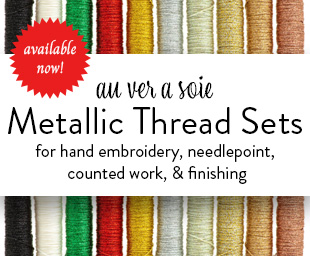
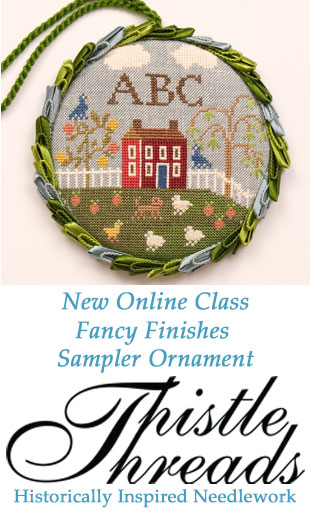
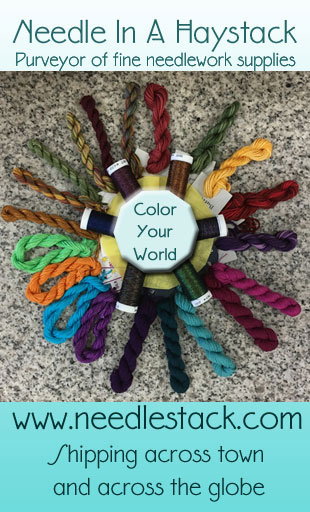

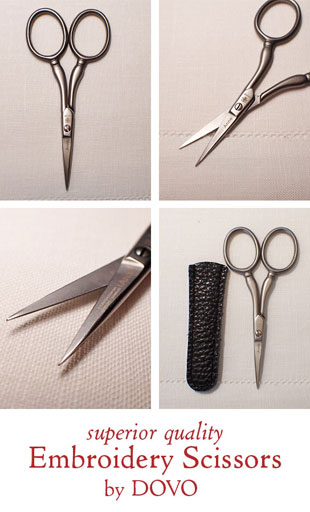
Dear Mary
The Metropolitan Museum of Art is a great to have for researching all kinds of historical embroidery. The database is endless and It must have taken you a while to choose the above articles for us to read and download. Thanks for sharing such a vital resource with us and for the links to specific embroidery related articles. I do hope you have had a good break and are feeling full of summer energy.
Regards Anita Simmance
Wow thank you so much for this list, Mary! I cannot wait to get started on my reading!
Bonjour Marie,
Merci mille fois pour votre recherche et vos découvertes pour nous, j’ai des paillettes pleins les yeux !.
I can’t thank you enough for the wonderful links and blog info. I will be able to study images and the history that goes with it. I love art and history, which makes me wonder what textile art will mirror our present location in history. 🙂